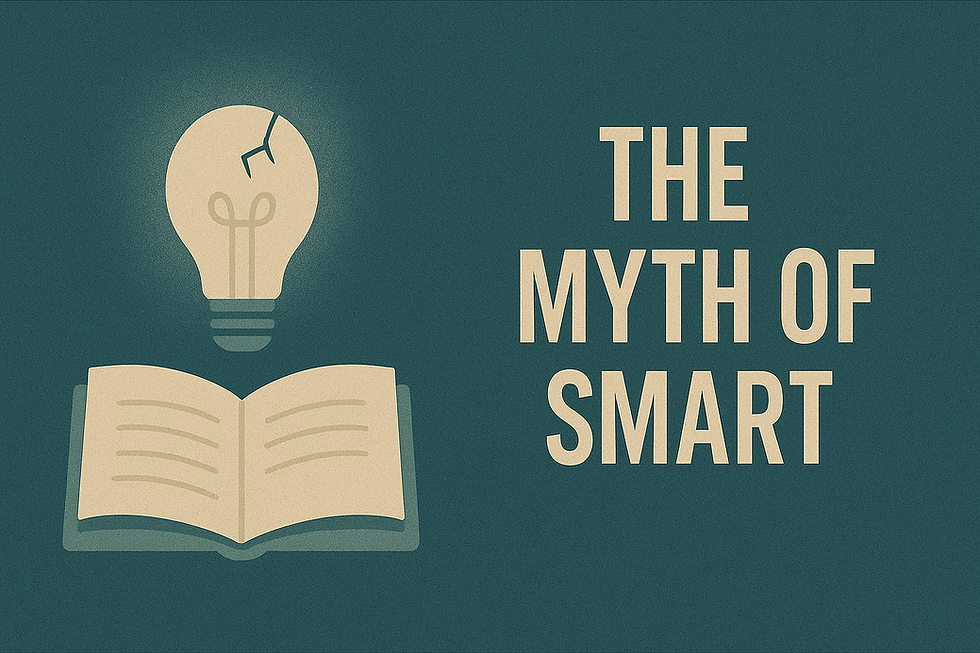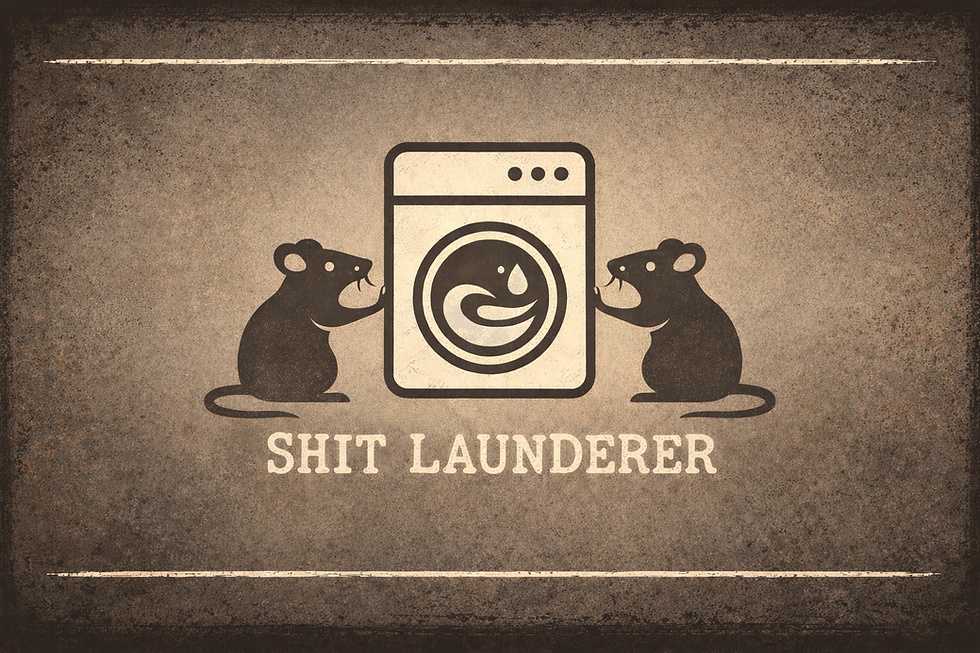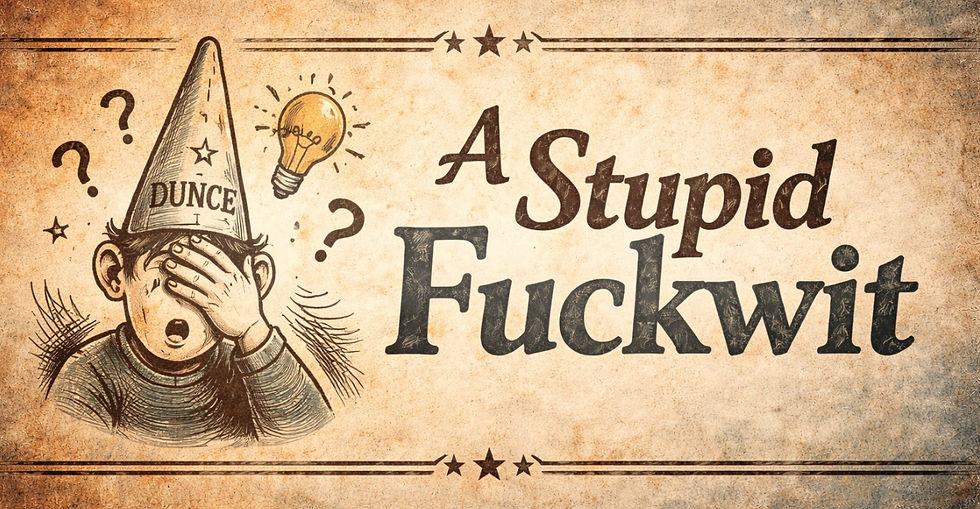Unlearning the Myth of Smart: Gut vs. Discipline
- john raymond
- Sep 2, 2025
- 4 min read

Our culture confuses brilliance with discipline. We act as if the ability to understand the world belongs only to a narrow priesthood of the inherently gifted, when in truth most of what separates the informed from the ignorant is not intellectual horsepower but work ethic.
The unlearning required here is simple but revolutionary: “smart” is not magic—it is the refusal to surrender to laziness.
The False Idol of Gut Thinking
Americans in particular idolize the gut. We speak of instinct, of “street smarts,” of quick reads on people and situations as if these flashes of impression are a substitute for analysis. This reflects the broader cultural habit of elevating feeling over thinking.
But gut alone is a poor guide. Without disciplined study, instinct merely repeats ignorance. A hunch that has never been tested or informed by deeper frameworks is simply bias with a costume.
Laziness as the Real Divide
The real line that separates those who see clearly from those who remain lost is not brilliance—it is persistence. Most people are of average intellect, yet they treat ideas as if they belonged to a separate species of “geniuses.”
But when someone exclaims, “You’re so smart!” what they are often saying is not that the other is in possession of an unreachable gift, but that they themselves were unwilling to do the homework.
The words are a confession, not a compliment: “I lacked the patience to grapple with the problem, so I will flatter your mind rather than confront my own laziness.”
All Hard Concepts Are Built from Simple Steps
It is true that most fields of study eventually run into dense walls of mathematics or abstraction. But even math itself is built up from small, simple rules, stacked patiently over time. So too with the frameworks that explain politics, war, and human behavior.
The Byzantine Generals Problem is not esoteric math but a question of trust and coordination.
Asymmetric Warfare is not advanced theory but the simple principle of using the weaker hand cleverly against the stronger.
Regime Security is only the recognition that rulers act to preserve themselves first, nations second.
Enemy Intent and Minimax are not advanced calculus but plain logic: assume your adversary aims to maximize harm against you.
None of these require an IQ of 140. They can be understood by any person of ordinary mind willing to trace the logic patiently. The true barrier is not comprehension but the unwillingness to climb step by step.
Why the World Is Ignorant Anyway
If the concepts are simple, why is the world so blind to them? The answer is that people prefer slogans to systems, shortcuts to study. Laziness is the deeper enemy.
Putin and his puppet Trump have built their strategies on this insight: they manipulate an inattentive populace that cannot be bothered to learn how regime security or asymmetric warfare work.
Their lies succeed not because these men are super clever but because their audience is idle.
The Myth of the Untouchable Genius
Those who labor to synthesize ideas and explain them are often treated as untouchable minds—too “smart” to be grasped. But this, too, is a defense mechanism of the lazy.
If someone is a genius, then one is excused from trying; the gulf is declared unbridgeable.
But the gulf is imaginary. What divides the speaker from the so-called genius is hours of persistence, not a different species of intellect.
The author is no unreachable mind. The difficulty lies not in the complexity of the thought but in the refusal of most to meet the thought with effort.
The Unlearning Required
The fourth step, then, is to unlearn the myth of smart. To discard the idol of gut instinct, to reject the fatalism that divides humanity into the brilliant few and the uncomprehending or “street smart” masses, and to replace it with discipline.
Intelligence is uneven, yes, but the decisive factor is willingness to do the work. That is the difference between those who see the world’s structures clearly and those who remain trapped in the fog.
Implication: The Call to Discipline
If most people can learn to read, to calculate, to navigate their daily lives, then most can also learn the basics of regime security, asymmetric warfare, and the logic of autocracy.
These are not the domains of geniuses. They are the domains of disciplined citizens. The enemy thrives on laziness, on a people too inert to test the lies placed before them.
To unlearn the myth of smart is to reclaim responsibility. It is to say: I can understand. I can struggle toward clarity. I will not outsource thought to others, hide behind “street smarts,” or excuse my ignorance with flattery.
This fourth unlearning step strips away one of the most insidious frames of all: that only a chosen few are smart enough to see the world clearly.
In reality, what separates the aware from the deceived is not brilliance but work. Persistence, discipline, and courage to engage are the true marks of intellectual might.
Heroes are not those born with gifted minds but those who refuse to yield to laziness. And in a world stalked by darkness, that discipline is itself a weapon.






Comments